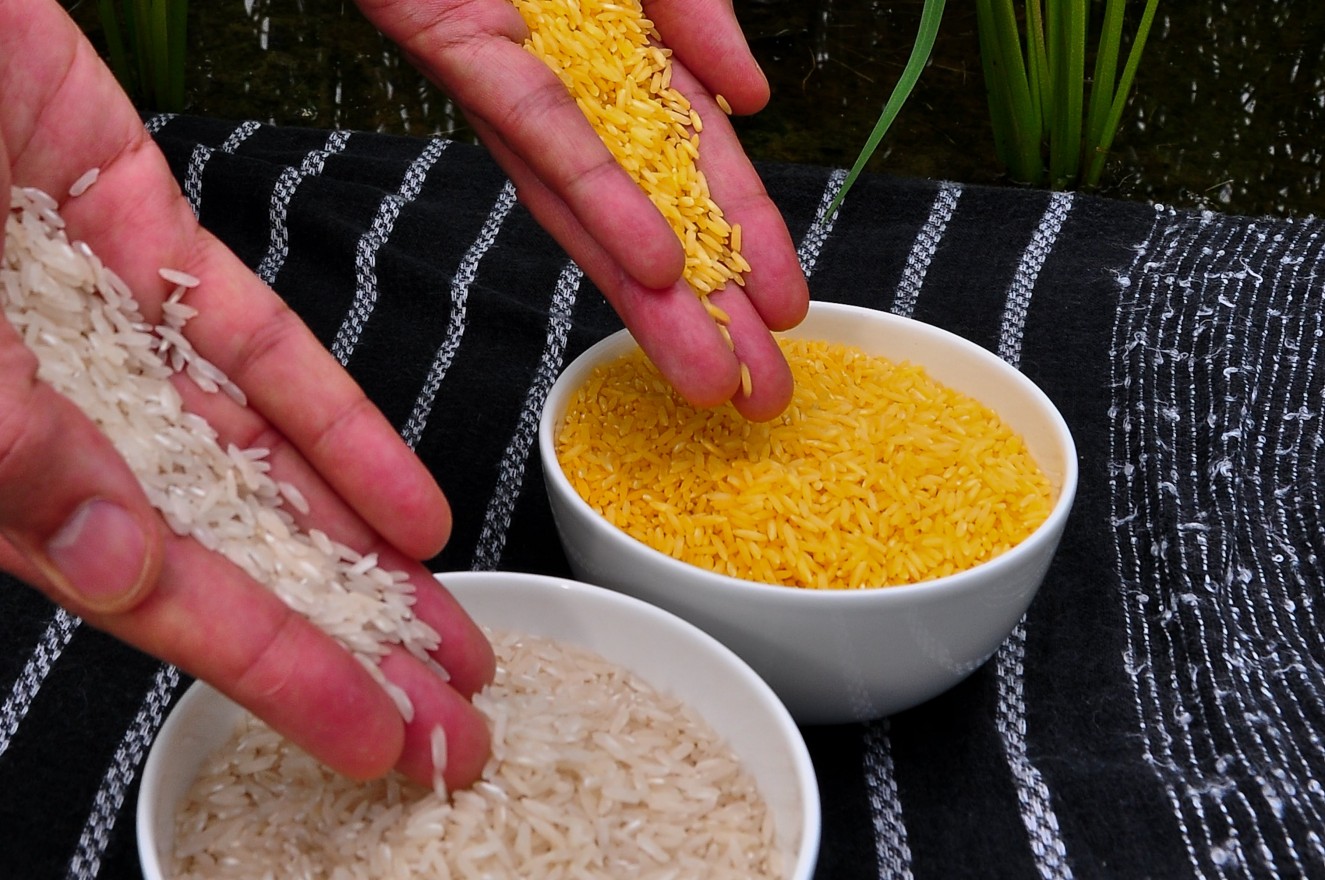
(International Rice Research Institute)

(International Rice Research Institute)
The World Health Organization estimates 250 million preschool children in developing countries are vitamin A deficient. Of those suffering from this nutrient deficiency, 250,000 to 500,000 become blind each year. Of those blinded, half will die within a year of losing their sight.
Thankfully, researchers have developed a potential solution which could quickly end the widespread suffering caused by vitamin A deficiency (VAD). But one might be discouraged to learn that this cure was developed back in 1999, and it has yet to be implemented on a broad scale.
Golden rice was heralded as a miracle cure when it was initially developed at the end of the 20th century to combat VAD in developing countries. Created by Ingo Potrykus, Peter Beyer, and their research teams, the genetically modified rice strain has the added benefit of producing beta-carotene, a compound which can be converted into vitamin A once ingested. The genes necessary for this new function were taken from naturally occurring soil bacteria, daffodil flowers, and domestic corn, where it was then inserted into natural rice. By adding beta-carotene to the grains of rice, an estimated 144 grams of golden rice must be consumed to fulfill the daily dietary requirements of vitamin A.
Supporters of the new strain of rice see widespread potential in preventing VAD by incorporating golden rice into the diet of children in developing countries. Rice is seen as a particularly useful medium for transmission of vitamin A since it is the staple food of many Asian countries where VAD is prevalent. Thus, wide scale adoption of golden rice could end child blindness and death due to vitamin A deficiency.
Despite the potential benefits, the GMO nature of golden rice has brought criticism. Criticism which has significantly slowed the implementation of the food source for the people who need it most. Advocacy groups such as Greenpeace, Center for Food Safety, and the Non-GMO Project have all countered the potential benefits of golden rice by raising concerns about food safety, biodiversity, and unnatural development. Opposition towards golden rice has resulted in real world consequences, such as in 2013 when an anti-GMO group broke into a golden rice research facility in the Philippines and destroyed fields as a form of protest.
Losing a single field of research rice is a minor setback for researchers, however such a stunt changes the way everyday people think about GMO crops such as golden rice. Anti-GMO advocacy groups use such publicity tactics to turn the public’s perception of golden rice from that of a potential savior to those at risk for VAD, to one of a controversial and dangerous technology. When golden rice is routinely reported on in this context of controversy and disagreement, it changes how the public will view efforts to implement the food source on a broad scale.
In the face of this dilemma, it is important to note that 88% of AAAS scientists believe that GMO crops are safe to eat. And a comprehensive report by the National Academies of Sciences, Engineering and Medicine concluded that GM crops are safe to eat and are not harmful to the environment.
There seems to be scientific consensus on the safety of GMO crops such as golden rice, yet the public remain skeptical thanks in large part to the campaigns put on by anti-GMO groups. Early initiatives to test golden rice are underway in the Philippines and Bangladesh, however GMO concerns have slowed the progress of these movements. It is clear public perception will have to take a significant turn before broad distribution of the life-saving rice can begin in the regions most affected by vitamin A deficiency.